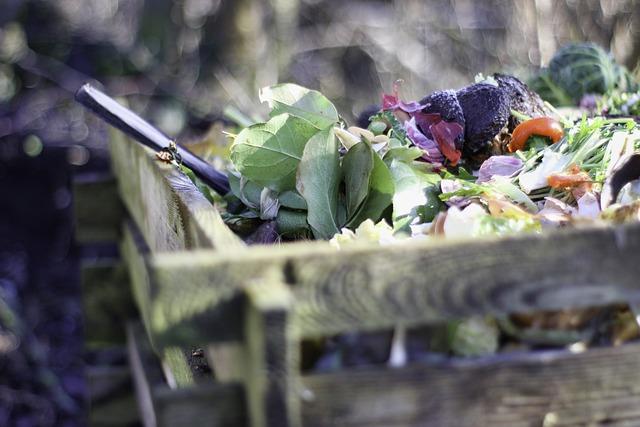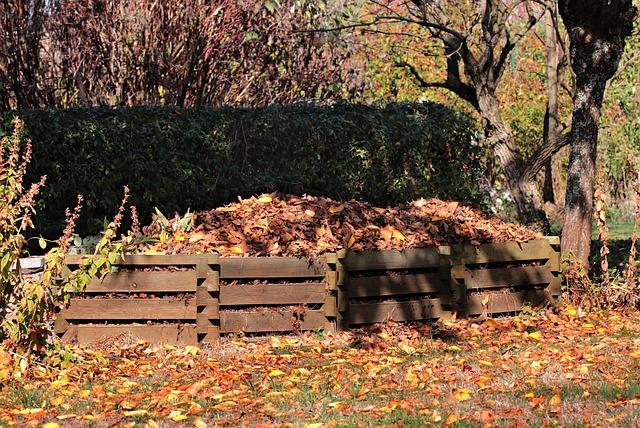- Introduction
- What is Composting?
- Benefits of Compost for Cities
- How to Start a Composting Program in Your City?
- Urban Composting Success Stories
- Conclusion
- FAQs
- References
Introduction
As our urban centers grow, so does the waste we produce. Cities around the world are dealing with increasing amounts of organic waste that end up in landfills, contributing to both pollution and greenhouse gas emissions. However, composting offers a cleaner, more sustainable solution to this growing issue. In this article, we will discuss what composting is, explore the many benefits it has for cities, outline how to implement a composting program on a city-wide level, and look at real-life examples of cities that have successfully embraced composting.
Whether you're a concerned citizen or a municipal leader looking to make your city greener, this guide will provide everything you need to know about the role of composting in cleaning up our urban environments.
What is Composting?

(Image: Pixabay/@heartempowerments)
Composting is a natural biological process that breaks down organic materials like food scraps, leaves, and yard waste into a nutrient-rich soil additive known as compost. Microorganisms, including bacteria, fungi, and worms, work together to decompose the waste; turning what could have been landfill waste into valuable fertilizer-like material that can enrich the soil.
Composting works by mimicking nature's way of recycling nutrients. Just as plants fall, decompose, and become part of the soil again in forests, we can do the same in our cities by properly managing our organic waste. There are different methods of composting, including home composting, vermicomposting (with worms), and municipal composting programs that handle large quantities of organic waste.
If you let organic materials rot in a landfill without access to air, they decompose anaerobically, producing methane—a potent greenhouse gas approximately 25 times more harmful to the atmosphere than carbon dioxide.
Benefits of Compost for Cities

(Image: Pixabay/@herb007)
The advantages of composting are vast, and when it comes to urban environments, the benefits can be amplified due to population density and waste concentration. Here are some key benefits of composting in cities:
1. Waste Reduction: By diverting organic materials from landfills, cities can reduce the amount of garbage sent to these already-overburdened sites, extending their lifespan. It's estimated that up to 60% of urban waste is organic matter, which could easily be composted.
2. Soil Enrichment: Compost acts as a natural fertilizer, enriching the soil with essential nutrients. Urban gardens, parks, and green spaces can directly benefit from locally-produced compost, improving plant growth and helping absorb stormwater.
3. Reducing Greenhouse Gases: Organic waste in landfills generates methane, a significant contributor to global warming. By composting, cities can significantly decrease their carbon footprint.
4. Economic Benefits: Cities that implement composting programs often see reduced landfill management costs and the creation of new jobs in waste management and urban agriculture.
How to Start a Composting Program in Your City?

(Image: Pixabay/@Pexels)
Starting a composting program in a city may seem daunting, but with proper planning and community support, it's achievable. Here are steps to get started:
1. Assess the City's Organic Waste Potential: Conduct a waste audit to understand how much organic waste your city produces and which sectors contribute the most. This information will help determine the scale of the program needed.
2. Choose Appropriate Composting Methods: Not all composting solutions fit all cities. Large metropolitan areas may require industrial composting facilities, while smaller cities can integrate neighborhood-based compost drop-offs or home composting initiatives.
3. Get Community Buy-In: Educational campaigns that inform people about the importance of composting, its benefits, and how they can participate are crucial. Many successful compost programs emphasize strong public engagement and community participation.
4. Establish the Infrastructure: Provide clear policies on organic waste collection, build community composting sites, and collaborate with existing waste management services. It's critical to ensure that the necessary infrastructure is built to keep the program efficient and sustainable.
Urban Composting Success Stories

(Image: Pixabay/@Hsaart)
Many cities globally have set remarkable examples by adopting composting on a significant scale. These success stories can inspire other cities to follow suit:
San Francisco: Ranking among the top environmental cities in the U.S., San Francisco was one of the first cities to require mandatory residential and commercial composting. As a result, it now diverts over 80% of its trash from landfills.
Toronto: Toronto, Canada, boasts an extensive curbside organic waste program. Residents are encouraged to separate food scraps and organic materials for city-wide composting. The program has been operating successfully, reducing landfill waste and generating rich compost for urban agriculture and landscaping projects.
Seoul: In South Korea, Seoul has developed 'food-waste meter' solutions. Residents pay based on their waste amounts, making them more conscious of how much organic waste they generate. The city composts most of its food waste, reducing its overall environmental impact dramatically.
Conclusion
Composting is a vital tool for building cleaner cities. It reduces waste in landfills, lowers greenhouse gas emissions, and provides much-needed nutrients back to the earth. By taking simple steps to implement composting programs, cities can transform their waste management practices and contribute to a healthier environment.
Through education, collaboration, and investment in composting infrastructure, our urban areas can embrace this sustainable waste management practice and serve as models for future green innovations.
FAQs
What type of waste can go into compost?
Items like fruit and vegetable scraps, coffee grounds, eggshells, yard clippings, and even some paper products can be composted. However, avoid composting meat, dairy, and oily foods, as they break down much slower and can attract pests.
Can I compost if I live in an apartment?
Yes! Even in small spaces, people can compost using indoor systems such as vermicomposting bins or via community compost drop-off points in nearby neighborhoods or cities offering such services.
Does composting smell bad?
When done correctly, composting should not cause any foul odors. Maintaining proper aeration and balancing "green" and "brown" materials ensures that compost breaks down efficiently without a strong smell.
How long does it take for compost to be ready?
The time can vary depending on the composting method, but typically it takes anywhere from 2 months to 1 year for compost to fully break down.

